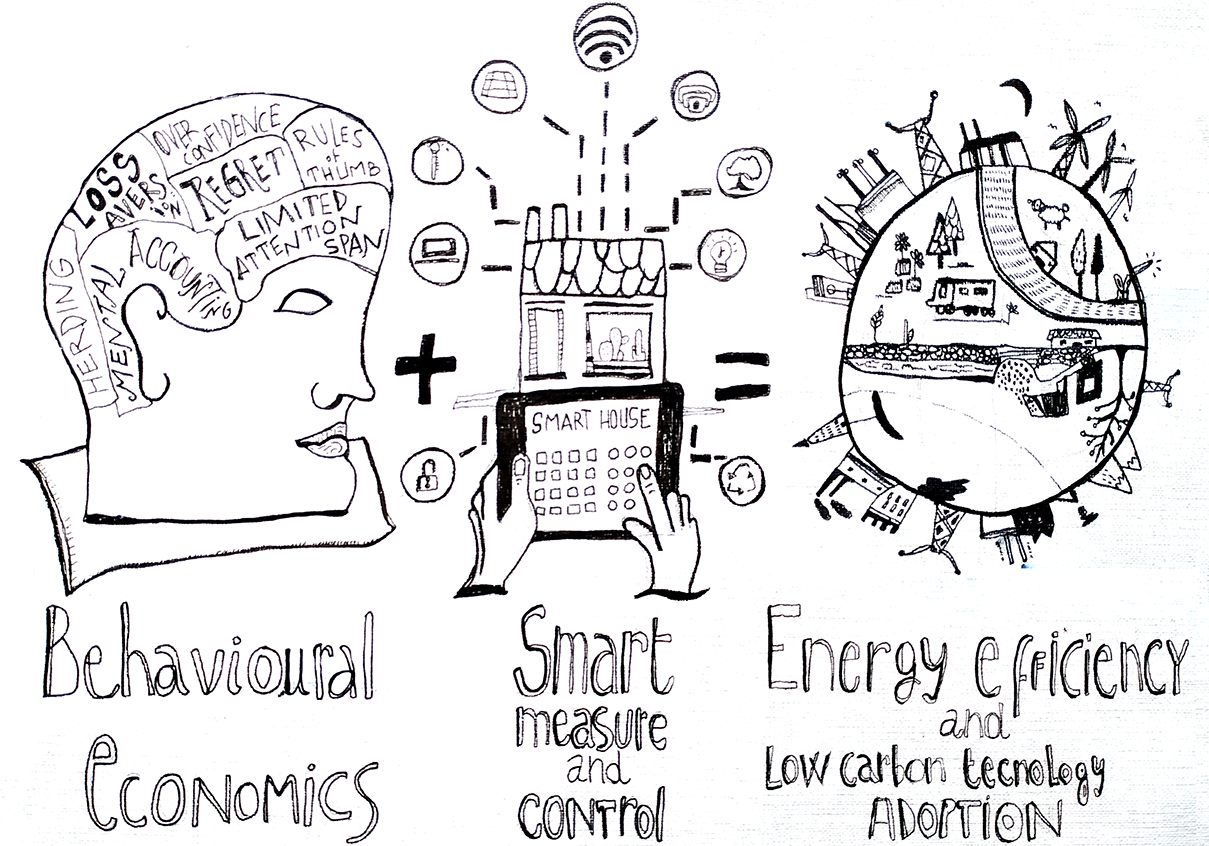About
What
COBHAM was an ERC funded project which lasted from August 2014 till July 2019.
Its objective was to study behavior and interactions among individuals and their impact on energy efficiency and climate change mitigation. The project aimed at increasing our understanding of human behavior in relation to the environment by developing models able to incorporate the heterogeneity and the complex dynamics of individual and group decision making.
The project integrated different disciplines –behavioural economics, big data analytics, integrated assessment modeling- with the objective to go beyond the standard analysis of energy and climate policies in the presence of environmental externalities. The novelty of COBHAM in combining these approaches, was to also account for the heterogeneity in preferences, the role of social interactions, and the presence of behavioral tendencies and biases.
Specifically the project has:
- tested behavioral interventions to promote energy efficiency, pro-environmental behaviour, and adoption of green technologies;
- modeled energy demand response using the big data coming from smart meters and devices;
- built a behaviorally founded integrated assessment model for the assessment of climate change and energy policies.
Why?
By focusing on stylized representative agents, models often failed to capture the heterogeneity of people preferences and endowments, the complexity and often non-standard (in economic meaning) characteristic of agents utility functions, and the behavioral tendencies which affect many of our everyday choices.
The idea that conservation has the potential to create "win-win" environmental and economic opportunities has been long discussed in the literature, but has remained difficult to prove. COBHAM filled this gap by analyzing the interplay between standard environmental policy intervention and the characteristics of human behavior. To this end, we have brought together interdisciplinary theories and applications of behavioral economics, experimental economics, environmental and ecological economics and technology policy.
How?
We have employed a series of methodologies for advancing our understanding and representation of pro-climate behavior.
Empirically, we have used statistical methods based on randomization. Randomized Control Trials (RCT) separate citizens or users into control and treatment groups of a priori identical groups. Only treatment groups receive behavioural interventions, and we measure their effectiveness by comparing them against the control group.
We have conducted field experiments with several leading energy companies in Italy, Europe and elsewhere (China, US, Pakistan). We have tested behavioural interventions (e.g. social comparisons, loss aversion, real time feedback, goal setting, etc) on many decisions, such as electricity consumption, appliance purchasing, gas self reads, bill repayment, air conditioning use, etc.
We have processed large databases of millions of observations, also coming from high frequency smart devices, to identify clusters of users based on their responsiveness, and thus allow to defined custom interventions.
In doing so, we have been able to provide a richer characterization of energy demand response, to evaluate the impact of behavioural ('nudges') and traditional interventions on emission reductions.
This is essential to provide input to the design of new policy instruments aimed at influencing energy and environmental sustainable behavior.
Impact
COBHAM has led to a series of articles published (or still in review) in the peer reviewed literature, all accessible from the publication sections of this website.
In addition, in 2016 we have co-organized (with John List, University of Chicago) a summer school for advanced Phd students about field experiments in environmental economics. And more recently, a workshop outlining the best practices for modeling human behavior in integrated assessment models.
On the policy front, we have advised several regulatory agencies, companies and institutions on the use of field experiments and behavioural science for designing and evaluating behavioural programs.
Last not least, COBHAM has given the chance to a group of talented researchers to do new work at the interface between behavioural economics, environmental economics and integrated assessment modeling. Several team members have taken up faculty positions at other universities (e.g. Yu Gao at Peking University, Giovanna d’Adda at University of Milan). Many remain collaborators in work and friends in life.


